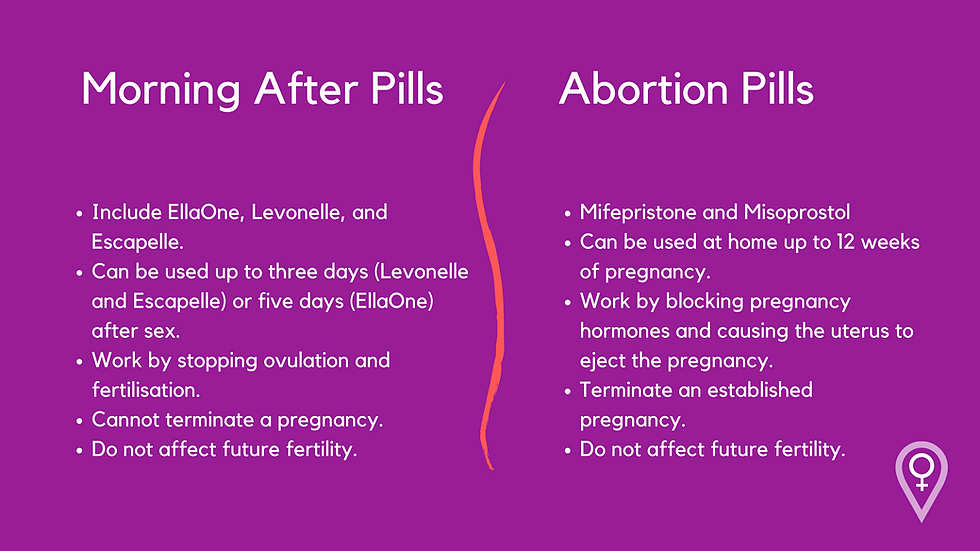No, the morning after pills do not cause abortion
- Nov 18, 2020
- 2 min read
Updated: Nov 21, 2020

The claim that emergency contraception, such as EllaOne*, Levonelle, and Escapelle, can cause harm to an established pregnancy is completely false. In fact, current data shows that if emergency contraception were to fail and the woman gets pregnant, the fetus is not harmed by the morning after pill.
Emergency contraception cannot terminate an established pregnancy. If a woman were to take a morning after pill after she gets pregnant, nothing happens and the pregnancy continues. The pills used to terminate an established pregnancy - called Mifepristone and Misoprostol - are completely different.
You may hear some sources claim that emergency contraception can make the lining of womb thinner and reject an embryo. This is unlikely to be the case because morning after pills simply do not have sufficient time to change the lining of the womb to prevent implantation, and a review of evidence by the American College of Obstetricians and Gynaecologists found no evidence that morning after pills prevent the implantation of an embryo. The way these pills work is by delaying ovulation (the release of the egg) and preventing fertilisation (the fusion of a sperm and egg).
It is worth mentioning that thinning the lining of the womb is a known action of the regular contraceptive pill and hormone intrauterine devices. However, people are not calling for these regular contraceptives to be banned or "conscientiously objecting" from providing them. It is the morning after pills that have been unfairly targeted, with many pharmacists in Malta and Gozo refusing to dispense them and LifeNetwork foundation trying to have EllaOne banned by the courts.
This difference between the moral acceptability of regular contraception and emergency contraception is not based on science, and is purely a result of historical negative attitudes towards morning after pills in Malta. This needs to change - the stigma surrounding emergency contraception must end and women's access to emergency contraception should be guaranteed.

* Even though some sources may claim EllaOne could have teratogenic potential, this has not been observed in practice. EMA SPC for EllaOne states that "limited human data regarding pregnancy exposure to ellaOne do not suggest any safety concern."



Comments